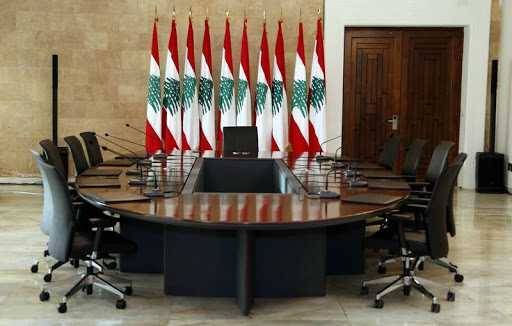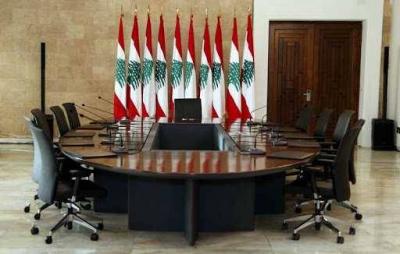It seems that caretaker Prime Minister Najib Mikati has decided to "raise the commission" in the open confrontation with the presidency and its party and to "raise the ceiling of challenge" with them on the eve of the binding consultations in Baabda on Thursday. He emphatically stated from Tripoli yesterday his rejection of yielding to the blackmail of the head of the "Free Patriotic Movement," Gibran Bassil, and engaging with him in any "trade-offs or compromises" to ensure the approval of his reappointment as the head of the new government. He directed criticism towards Bassil without naming him, as he is pushing towards "transforming the position of the presidency of the government and the person of the prime minister into a matter for settlements." Mikati concluded by drawing a "clear equation" in the commissioning and formation process, "there is no retreat from this under the pressure of numerical or political calculations that some are trying to impose for bargaining."
However, Mikati, who has closed the door on "Bassil's bazaar," did not hide his desire to remain in the third presidency position. He expressed his willingness to continue "bearing responsibility and boldly serving the public" without sliding into the realm of "suicide and futile confrontations." Political sources, through "Voice of the Nation," saw in this "a clear declaration from the caretaker Prime Minister that he aspires to a new governmental term that allows him to reap the fruits of the seeds he planted through communication with Arab and Western societies and the International Monetary Fund in the past period." They considered that "the tone of challenge he used yesterday reflects his confidence that he is the most likely candidate in Thursday's consultations, whether due to external reasons related to ongoing French and American support for his reappointment, or internal reasons essentially stemming from the fact that he is "aware of what others (candidates) have."
On the opposition's side, calculations and preparations for the governmental entitlement are different. Parliamentary sources revealed to "Voice of the Nation" that the pace of communications and consultations has increased in recent hours across the lines of communication between parliamentary blocs, both traditional and change-oriented, in an attempt to reach an agreement on a consensual candidate to be nominated for the government task. They did not rule out that the consultations on Thursday may witness a "surprise" being prepared with much care and understanding of the battle's calculations and obligations, so that the results may differ from the outcomes of the elections for the deputy presidency of the parliament and the Bureau of the Council and committees.
While emphasizing that everyone realizes that "commissioning is one thing and forming a government is another in light of the bitter historical experiences with the Aoun presidency throughout previous governmental entitlements," the sources saw that "the priority today is to restore parliamentary balance in favor of opposition forces during the commissioning entitlement to affirm the intention to bring about the desired change in the management of state affairs and its institutions, starting with the executive authority responsible for preparing and implementing the required reform map to save the country." They also pointed out that "the other camp is exerting all its efforts to re-establish its parliamentary majority in the governmental entitlement, whether through repeating the scenario of a majority of 65 in the commissioning process or by trying to ensure that division continues among the ranks of the opposition political parties and change forces." They referred in this context to information suggesting that Parliament Speaker Nabih Berri requested the "Democratic Gathering" bloc to, if they do not accept Mikati's reappointment, "at least not name another candidate for commissioning."
Until the parliamentary blocs finalize their decision in the coming days, they are conducting a broad range of consultations, particularly between traditional and change-oriented opposition forces, in an attempt to reach an agreement on the name of the candidate they will bring to the consultations, despite it still bearing an individualistic character except for the open meetings between the "Democratic Parliamentary Gathering" and the "Lebanese Forces" party to crystallize a unified position that considers a comprehensive political-economic vision with unprecedented criteria, based on rotating ministerial portfolios, including sovereign ones, so that they do not remain restricted to the Maronites, Sunnis, Shiites, and Orthodox.
The "Middle East" learned that lawmakers affiliated with the change forces continue their meetings to determine whom they will nominate for the position of prime minister, provided that the candidate commits to the political and economic program they have completed and which they treat as the mandatory passage to save the country. A parliamentary source from the change forces revealed that communications have not ceased but are at the individual level between deputies who are members and others from the "Progressive Socialist" and "Lebanese Forces" parties, in addition to several independents, in an initial attempt to find a common political-economic space upon which to establish an understanding on how to deal with the governmental file.
The same source noted that the communications are still in their early stages and cannot be built upon unless they develop into large-scale official meetings. Furthermore, he confirmed that the change forces are serious about adopting a candidate for the position of prime minister who commits to endorsing the political and economic titles included in the working document they have prepared and are ready to discuss it with the candidates, starting from the principle of separating parliament and ministry, which means excluding deputies in those forces from naming any candidate from among the deputies.
He believed that the agreement among the change deputies on the name of the candidate to be nominated in the parliamentary consultations means that they will participate in a unified delegation; otherwise, it will be left to the deputies' freedom to head to Baabda Palace, adhering to the order mentioned in the schedule of meetings between the President of the Republic and the independent deputies, with the expectation that they will issue a unified statement at the conclusion of the consultations. While the source ruled out the possibility of naming any candidate for the position of prime minister belonging to the political system, whether in power or outside of it, he confirmed that the deputies have begun to shortlist potential candidates based on what is being discussed through media or in closed meetings.
In this context, it is rumored that the deputies are seriously considering several names, including Sara Al-Yafi, granddaughter of former Prime Minister Abdullah Al-Yafi, and former Lebanese Ambassador to the United Nations and member of the International Court in The Hague, Nawaf Salam, with whom several deputies affiliated with the change forces are in contact. In this regard, the same parliamentary source expressed surprise at the rumors that Salam had decided to withdraw from the race for the position of prime minister. He told "Middle East" that his name is strong, not only from our side but also from other forces and several independent deputies, which is confirmed by a source in the "Progressive Socialist Party," stating that his name has not been withdrawn from consideration and that their party has not been informed of recent speculation that he has distanced himself from candidacy if the political conditions are favorable for him to engage in the battle to save the country in cooperation with those willing to fight it.
He confirmed that those outside the ruling system are gauging the opinions around their willingness to nominate Salam for the position of prime minister, as they find substantial alignment with his positions, indicating that there is a shared political space uniting them with him. However, despite informed circles asserting that Mikati's commissioning on Thursday is assured, knowledgeable circles, through "Al-Jumhuriya," see that "the formation" is not agreed upon, and Mikati might not accept "commissioning for the sake of commissioning." The "Free Patriotic Movement" will not name him in the parliamentary consultations, and the "Lebanese Forces" party may act similarly. If neither of the two Christian teams agrees to participate in the government or grant it confidence, Mikati's government cannot "take off" without the necessary Christian covenant. Additionally, it would be impossible to form a government if demands and conditions remain as high as those set by the head of the "Free Patriotic Movement," Deputy Gibran Bassil.




